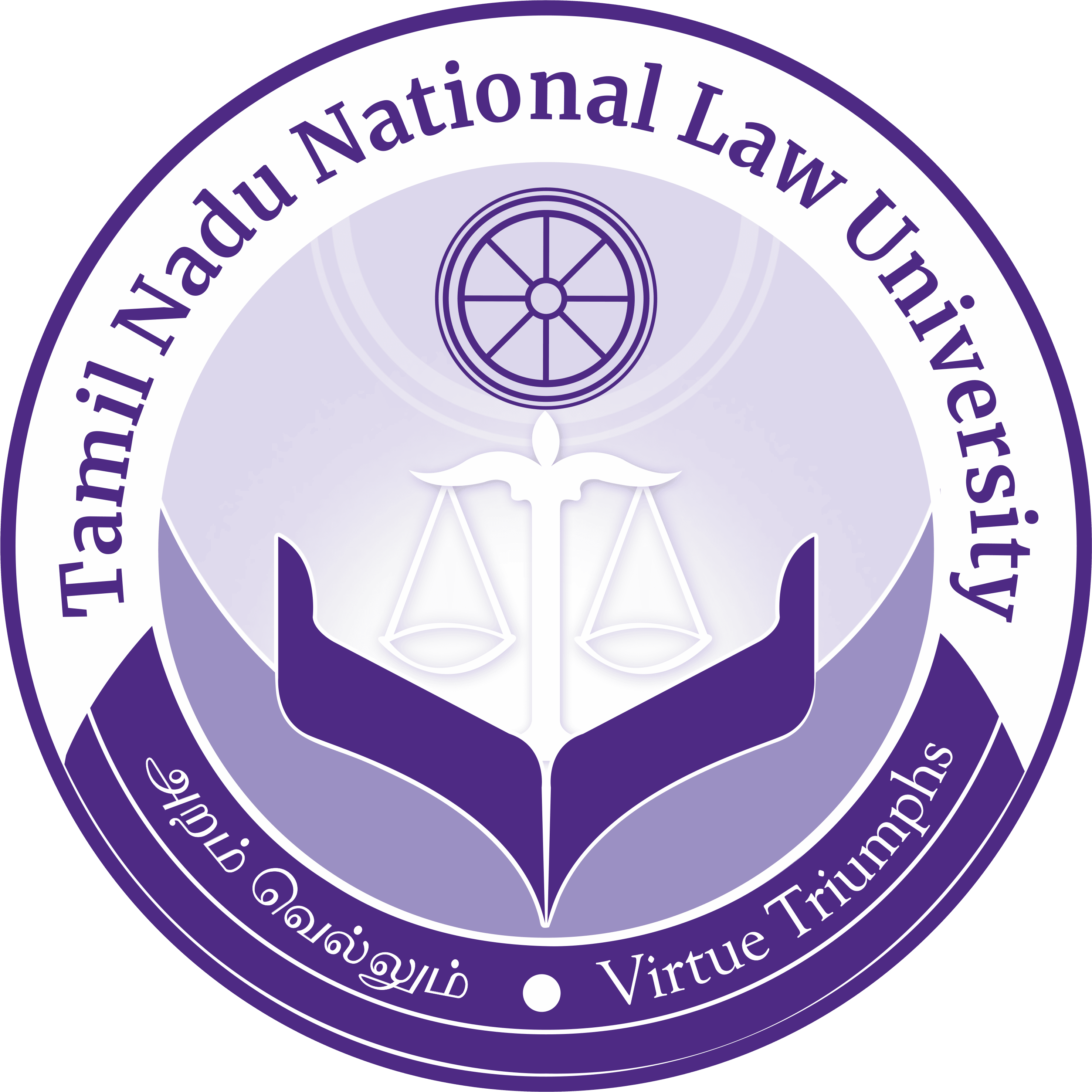

The Centre for Studies in Victimology at Tamil Nadu National Law University was established in 2021 under the visionary guidance of the then Hon’ble Vice-Chancellor, Prof. (Dr.) V. S. Elizabeth. The Centre was conceived with the aim of fostering interdisciplinary research, academic discourse, and policy development in the field of Victimology and Victim Justice.
As a pioneering academic initiative, the Centre is committed to reshaping the understanding of justice by placing the victim at its core. In a justice system traditionally focused on offenders, the Centre seeks to restore balance by highlighting the rights, needs, and voices of victims. It acts as a bridge between law, criminology, psychology, sociology, and social work, encouraging a holistic and empathetic approach to victim assistance and protection.
Through research projects, capacity-building programmes, legal awareness initiatives, and collaborations with judicial institutions, enforcement agencies, NGOs, and international bodies, the Centre aims to strengthen victim-centric frameworks and promote humane, restorative approaches to justice. Its activities are guided by the principles of the United Nations Declaration of Basic Principles of Justice for Victims of Crime and Abuse of Power (1985), reflecting a commitment to global standards and human rights values.
The Centre for Studies in Victimology envisions a society where every victim is recognized, supported, and empowered. More than a research institution, it represents a collective mission to transform compassion into advocacy, knowledge into reform, and justice into healing.
The Centre for Studies in Victimology has been established with the following key objectives:
Delhi Metropolitan Education Law School, Noida, in collaboration with the Centre for Studies in Victimology (TNNLU), the Department of Policing, Criminology & Justice, University of East London, the Bureau of Jail Management and Penology, Govt. of Philippines, the Indian Society of Criminology, and the Centre for Criminology & Forensic Science, HPNLU Shimla, organized an International Symposium on “Remaking Criminology: Contemporary Insights from the Criminal Justice System”on 17–18 March in hybrid mode. The event featured eleven technical sessions, with an overwhelming response of 170+ papers and about 300 participants, bringing together leading academicians, practitioners, researchers, and students to share insights on criminology and the criminal justice system. Ms. Golda Sahoo, Faculty-in-Charge of the Centre for Studies in Victimology, TNNLU, chaired Technical Session 4 on “Law Enforcement & Criminal Justice Delivery”.
The Centre for Study in Victimology, TNNLU, hosted a one-day webinar on “Shifting Paradigms of Victims’ Rights from 1947–2021”on 19th March 2022. Aimed at exploring theoretical perspectives, tracing the evolution of victimology in India, and highlighting justice for victims, the event featured eminent speakers. Prof. (Dr.) Beulah Shekhar(NISFS) stressed the significance of the 1985 UN Declaration on Victims’ Rights covering access to justice, restitution, compensation, and assistance urging stronger implementation in developing nations. Dr. Paromita Chattoraj (KIIT Law School) critiqued the social shaming of rape survivors and emphasized the Verma Committee’s reforms for broader protection under IPC.Dr. Latha Subramanian(University of Madras) outlined legislative measures but observed that victims’ status remains stagnant since independence. The session, moderated b Ms. Golda Sahoo FIC of the Centre and graced by Prof. V.S.
.
Elizabeth,the then Vice Chanecellor ,TNNLU
A project was successfully completed under the Centre titled “Minor Project Report on Victim Compensation Schemes for Women Victims of Sexual Abuse under the Trichy Legal Services Authority.”
On 21st April 2025 at 6:15 PM, a discussion was held under Student Discussion Forum on the critical topic of “Acquittal in Child Rape and Murder Cases in India.” The objective of this discussion is to facilitate the students to understand the role of the Supreme Court in handling child rape and murder cases, and to encourage critical thinking among the students.
The group critically debated whether the ‘beyond reasonable doubt’ standard is applied too rigidly in child sexual abuse cases, weighing the risks of wrongful convictions against the need for victim-sensitive justice. Discussions examined judicial discretion, evidentiary interpretation, and sentencing biases, particularly against marginalized victims, while also highlighting the trauma, stigma, and alienation families face after acquittals. Participants unanimously stressed the need to re-evaluate POCSO’s implementation, recommending specialized forensic units, CCTV-recorded child testimonies, state-funded victim lawyers, stronger witness protection, robust judicial training, and a national database on acquittals. The session, backed by NCRB data, judicial precedents, and FTSC performance reviews, concluded with a call for more victim-centric, time-bound justice, summed up by Ms. Sahoo’s reminder that justice must be visibly done and assertion that the law must not fail children twice.
The session on Cyber Crimes, Artificial Intelligence, and Victimology was organized by the Centre of Victimology, TNNLU, on 25th August 2025 from 6:30 PM to 8 PM under the guidance of Ms. Golda FIC of the Centre. Guest speaker Ms. Deepa Manickam, Assistant Professor & FIC, Centre for Research, Development and Training in Cyber Laws and Cyber Security,TNNLU delivered the main lecture. The session concluded with a question from FIC Ms. Sahoo on the need for a separate AI Act, to which the speaker responded that India may need more time before introducing standalone AI legislation.